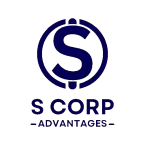S Corp vs Sole Proprietor: What's the Difference?
Selecting the appropriate business structure is a critical decision that can impact various aspects of your operations, taxes, and liability. Two common options for small business owners are the S corporation and the Sole Proprietorship. Each has distinct advantages and disadvantages, making the choice dependent on your specific business needs and goals. In this post, we will help you choose if you want to run your business as an S corp vs sole proprietor, so you can make an informed decision.
Overview of S Corporations
An S corporation (S corp) is a type of corporation that meets specific Internal Revenue Code requirements. The main benefit of an S corp is tax savings and the ability to reduce the amount of payroll taxes your business pays. S corps also have pass-through taxation, where income, losses, deductions, and credits flow through to shareholders’ personal tax returns, avoiding double taxation (compared to C corps).
Key Characteristics of S Corporations:
- Limited Liability: Shareholders have limited liability protection, meaning their personal assets are generally protected from business debts and liabilities.
- Pass-Through Taxation: Profits and losses are passed through to shareholders’ personal tax returns, and the business itself is not taxed at the corporate level.
- Formal Structure: S corps must adhere to formalities such as holding annual meetings, maintaining corporate minutes, and following a more rigid operational structure.
- Ownership Restrictions: S corps can have up to 100 shareholders, and all must be U.S. citizens or residents. Partnerships, corporations, and non-resident aliens cannot be shareholders.
Overview of Sole Proprietorships
A Sole Proprietorship is the simplest and most common structure chosen to start a business. It is an unincorporated business owned and operated by one person, with no distinction between the owner and the business.
Key Characteristics of Sole Proprietorships:
- Simplicity: Easy to form and operate, with minimal regulatory requirements and lower costs.
- Full Control: The owner has complete control over all business decisions and operations.
- Unlimited Liability: The owner is personally liable for all business debts and liabilities, which can put personal assets at risk.
- Taxation: Income and expenses are reported on the owner’s personal tax return (Schedule C), and self-employment taxes apply to the business income.
S Corp vs Sole Proprietor
Liability Protection:
- S Corporation: Provides limited liability protection, safeguarding shareholders’ personal assets from business debts and lawsuits.
- Sole Proprietorship: Offers no liability protection; the owner is personally responsible for all business obligations.
Tax Considerations:
- S Corporation: Benefits from pass-through taxation, potentially avoiding double taxation. Shareholders can also save on self-employment taxes by paying themselves a reasonable salary and taking the remaining profits as distributions.
- Sole Proprietorship: Income is subject to self-employment taxes, which can be higher than the combined salary and distribution tax strategy of an S corp.
Administrative Requirements:
- S Corporation: Requires more formalities, including maintaining corporate records, holding regular meetings, and following a strict operational structure.
- Sole Proprietorship: Minimal regulatory requirements, making it easier and less costly to manage.
Flexibility and Control:
- S Corporation: Decisions are typically made by a board of directors and shareholders, which can complicate decision-making processes.
- Sole Proprietorship: The owner has full control and flexibility in making business decisions.
Growth and Investment:
- S Corporation: Can have up to 100 shareholders, allowing for easier access for additional partners and potential growth opportunities.
- Sole Proprietorship: Limited to the resources and capital of the owner, which can restrict growth potential.
Beneficial Ownership Information Filing Requirements:
- S Corporation: Since S corps are registered with the state, Beneficial Ownership Information (BOI) is required to be filed.
- Sole Proprietorship: Unless the business was registered with a secretary of state, BOI is not required to be filed.
S Corp vs Sole Proprietor Conclusion
Choosing to run your business as an S corp vs sole proprietor depends on various factors, including your business goals, the level of liability protection you need, tax implications, and your willingness to comply with administrative requirements. In summary:
- S Corporations are ideal for those seeking liability protection, potential tax savings, and content with the administrative and regulatory requirements.
- Sole Proprietorships are suitable for individuals looking for simplicity, full control, and minimal regulatory burdens.
Consulting with a business advisor or tax professional can provide personalized guidance based on your specific situation, helping you make the best choice for your business’s success and growth. The regulatory and compliance aspects of an S corp may seem daunting, but S Corp Advantages takes care of all of this for you, so you can save on taxes and focus on growing your business.
Want to Know if an S Corporation is Right for Your Business?
Learn More
Check out our other posts and subscribe to our YouTube page for more information.
About the Author

Brett Rosenstein
Founder of S Corp Advantages
Certified Public Accountant
Brett is the founder and president of S Corp Advantages where he specializes in S corporations. He helps business owners understand if an S corporation election is right for their business. He also keeps current S corps in compliance with IRS regulations.
Brett received a Bachelor of Science in Business Administration from The Ohio State University. He is also a Certified Public Accountant.
When Brett is not working, he is running, biking, spending time with his wife and daughter, or trying new pizza places around Chicago.
Work with Us
S Corp Tax Filings
pricing starts at-
1 State Filing Included
-
E-Filing
-
Quarterly Estimate Vouchers
Monthly Bookkeeping
pricing starts at-
Capture All Deductions
-
Balance Sheet and P&L
-
Real-Time Financials
S Corp Election Filing
pricing starts at-
Professionally Prepared
-
Filing Included
-
Late Filing

